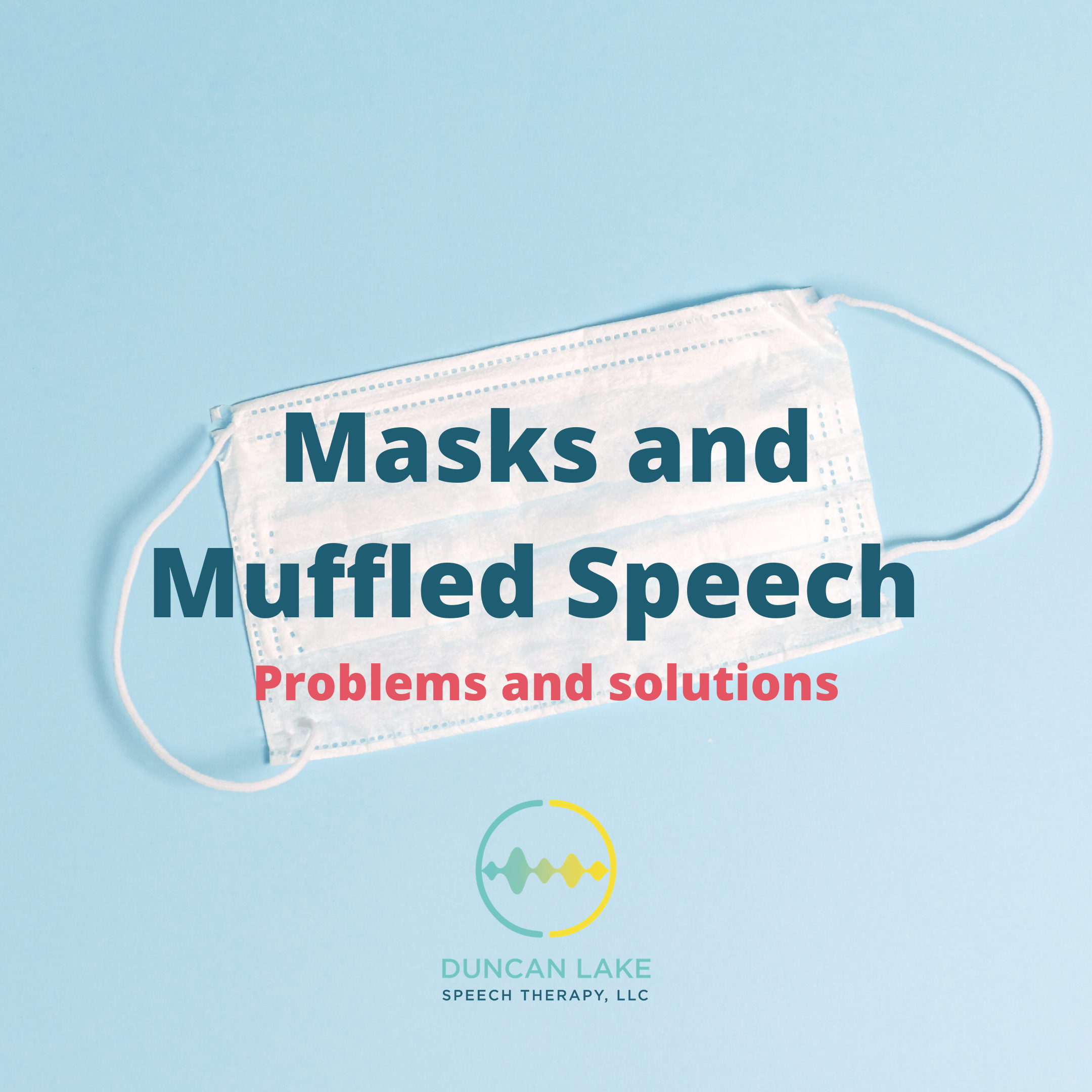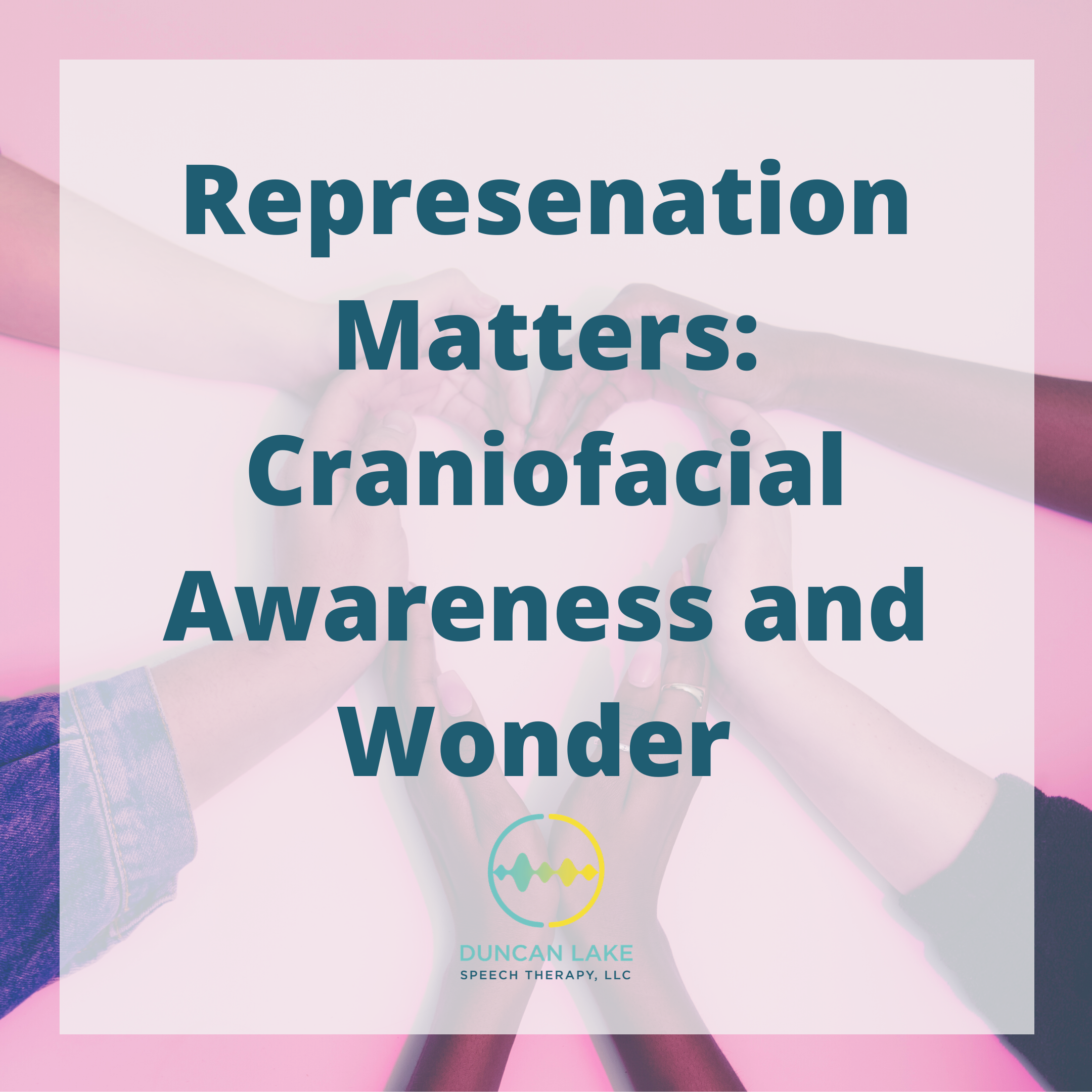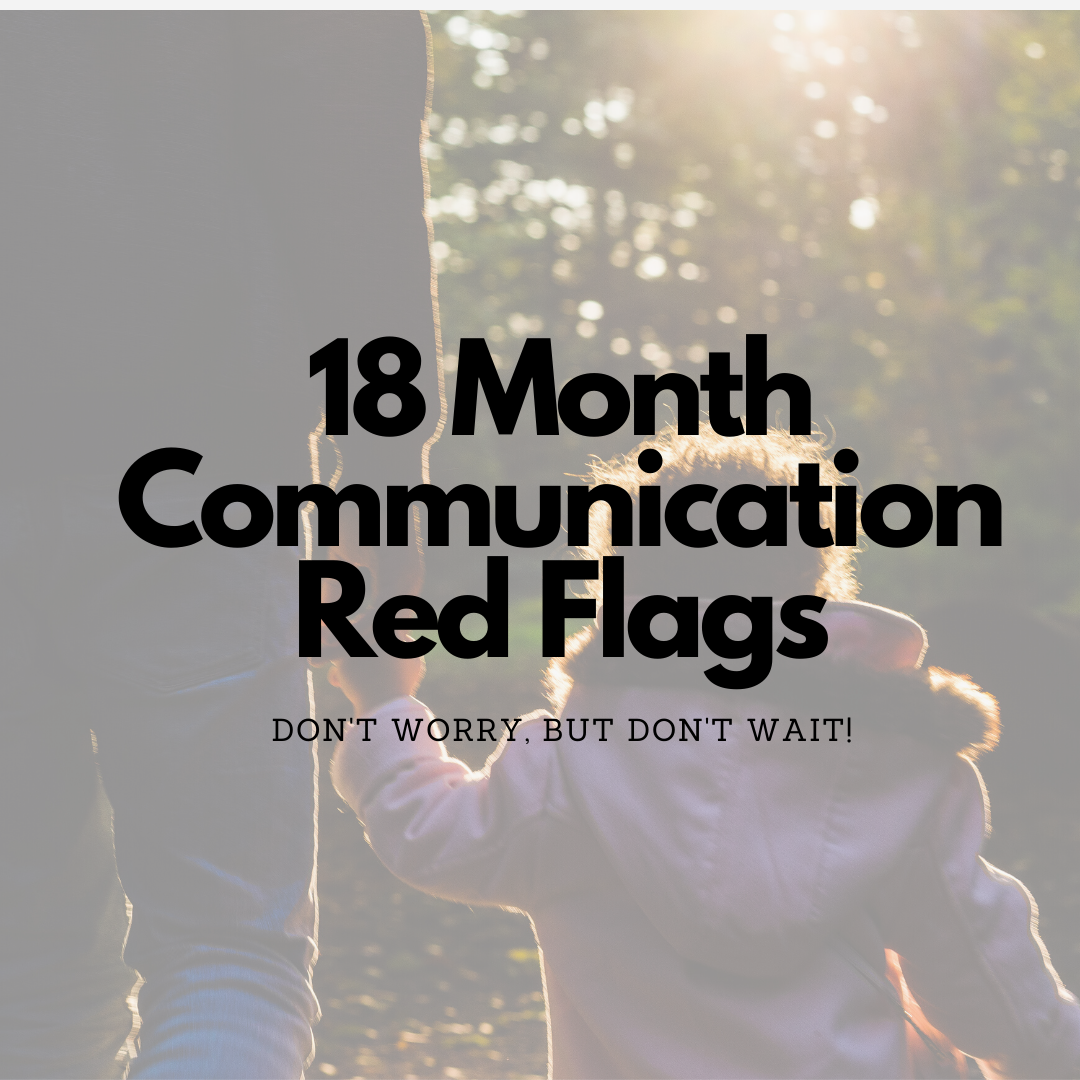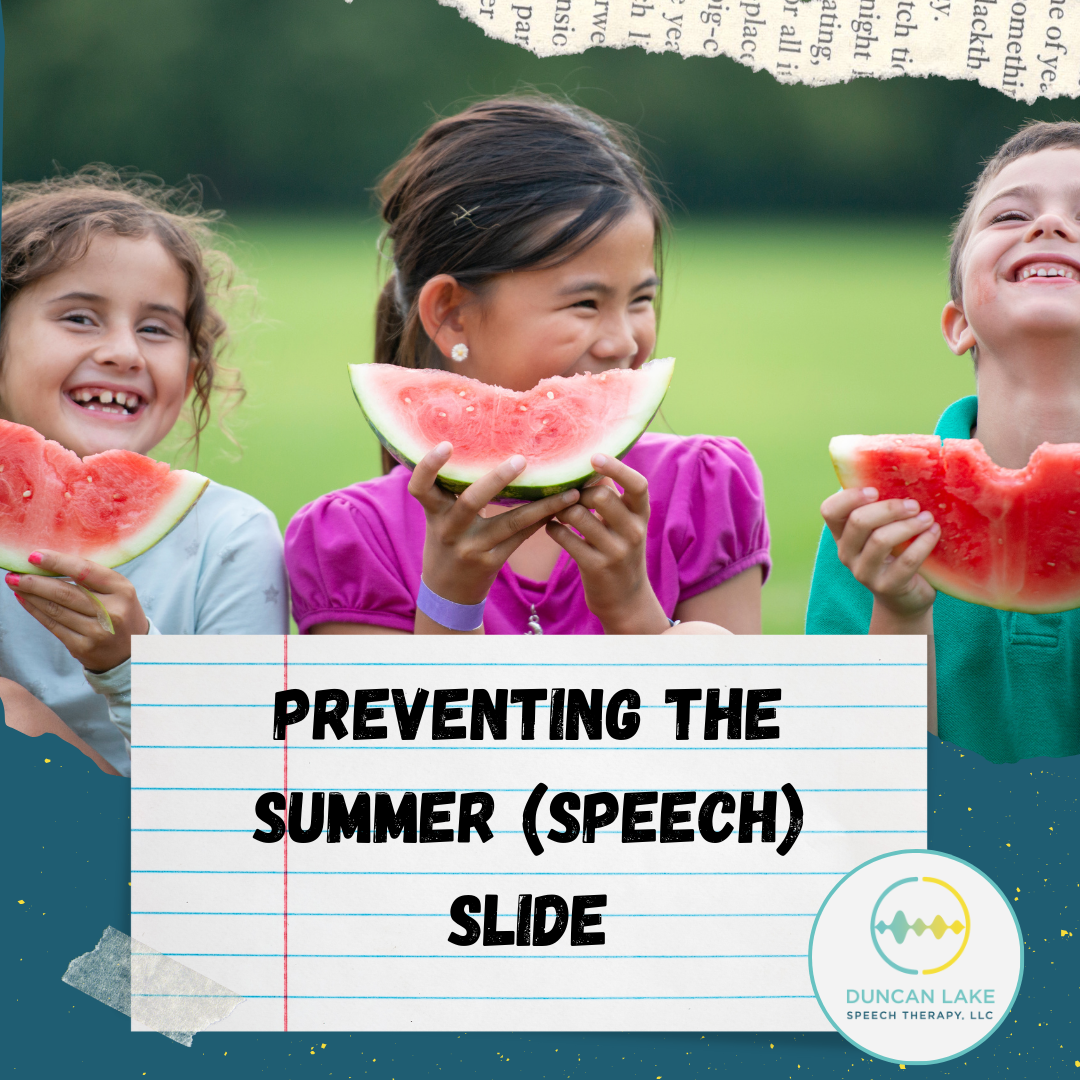
by Tami Teshima | Jul 28, 2020 | Language Development
Michigan residents cling to summer weather like velcro. We only get about 4 months of sunshine, so we spend all the time we can outside during the summer. The outdoors can be a great place to work on building your child’s language skills (as we already know)....

by Tami Teshima | Jul 21, 2020 | Hearing Loss
I’d just like to preface this blog post by saying that masks are not up for debate on this platform. My job is to bring you information relevant to speech, language, and hearing, and that’s what I’m going to do. My husband works at a retail pharmacy...

by Tami Teshima | Jul 15, 2020 | Clefts and Craniofacial
This week, we’re very happy to welcome the Duncan Lake Speech Therapy summer graduate intern, Katrina Beals, to the blog. As you know, DLST believes in better representation, inclusion, and accessibility in all aspects of life. Today, Katrina talks with us about...

by Tami Teshima | Jul 7, 2020 | Language Development
by Tamiko Teshima, M.A., CCC-SLP Duncan Lake Speech Therapy, LLC Updated for July 2024 We live in a society that values politeness in uncomfortable situations. Have you heard the term “Midwest nice?” It’s very real. While this can be very pleasant...

by Tami Teshima | Jun 24, 2020 | Language Development
The people have spoken, and you want to know more about milestones. I wrote a blog post earlier this year about communication milestones and red flags at 24 months, so this week, we’re taking it back to 18 months. Our Facebook page featured some of the...

by Tami Teshima | Jun 18, 2020 | Alzheimer's
Alzheimer’s disease is the 6th leading cause of death in the United States. Over 5 million people are diagnosed with Alzheimer’s, and is the cause of death for 1 in 3 seniors. Despite these big numbers, Alzheimer’s can still be a confusing or even...

by Tami Teshima | May 27, 2020 | Uncategorized
Friends, we have made it to the end of the school year School is OUT (or almost out)! Let’s take a moment to celebrate this fact! (Time yourself – one minute, please.) You should certainly celebrate this accomplishment, but for our friends with speech...

by Tami Teshima | May 14, 2020 | Technology and Apps
In the last 2 months, I think we’ve all been there – we’re on a video chat with a child and it goes TERRIBLY. There are a lot of blank stares, long moments of silence, and sometimes (read: almost always) the phone shakes as if you’re in a 6.0...

by Tami Teshima | May 6, 2020 | At-Home Speech
I am living for my walks these days. We’re currently on a two-a-day schedule, or however many our dog demands. It’s good to get outside and enjoy the weather, especially here in Michigan! I’m not alone. I see families on walks even where I live (in...

by Tami Teshima | Apr 30, 2020 | Brain Injury
I threw out some bike/helmet statistics earlier in the week on our Facebook page. Largely, these statistics showed that helmet wearing can prevent head injury. I wanted to dive a little further into this topic because, as the weather continues to improve (IN THEORY)...












Recent Comments